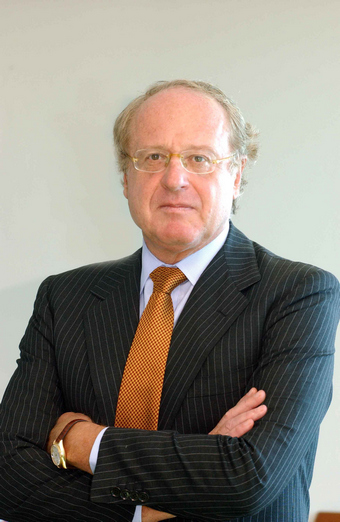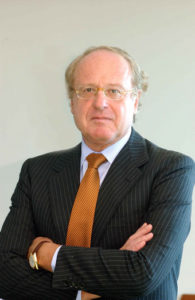
Washington, Eni Chief Executive Officer Paolo Scaroni speech at Atlantic Council. “The first – and most straightforward – idea is to exploit shale gas in Europe. We probably have quite a lot of it. But we need political consensus to be able to exploit it”.

Ladies and gentlemen, good afternoon.
I would like to thank Fred Kempe for the invitation to introduce today’s session, which will be centered around energy and global politics, with a particular focus on Russia and North Africa.
I was delighted to be asked for two reasons.
Firstly, it is a pleasure to be here in Washington, and in such illustrious company.
And secondly, today you are basically talking about my job. I think about Russia, Libya, Algeria and Egypt almost every day – and often at night too. That’s because eni, my company, buys about $8bn of gas from Russia each year being the first client of Gazprom in the world and is by far the first international oil company in each of the North African countries.
So, as you can imagine, I could hold lengthy and probably boring lectures about each of these topics. But given the stature of the speakers who will follow me, I will keep my overview brief.
First, on global energy and politics, I have good news for this audience: the US is set to score well in the global competition for industrial investments for decades to come. That’s because – in addition of your business-friendly environment, qualified workforce and strong internal market – you now have really plenty of cheap energy to fuel growth.
what’s good news for the US is pretty bad news for Europe. Our industry – already battered by low demand and rigid labour markets– now has to contend with natural gas prices which are three times as high as those in the US, and electricity prices which are more than twice as high.
The sum of all these headwinds is devastating. Any energy intensive business which can relocate from europe to the US is doing so. And European gas demand is down 15 % since 2008.
The situation isn’t going to improve much by itself. Even if the US exports shale gas to Europe, by the time it has been liquefied, transported across the Atlantic, and re-gasified, it will be twice as expensive as gas here.
So, if European politicians are serious about industrial renaissance, something actually needs to be done.
The first – and most straightforward – idea is to exploit shale gas in Europe. We probably have quite a lot of it. But we need political consensus to be able to exploit it – and there is still a lot of opposition. Just this last weekend, French President Hollande said that as long as he remains in charge there will be no exploration for shale gas in France. So, to access the potentially significant French shale gas resources Europe will need to wait until Mr Hollande changes his mind, or France changes President.
Other potential solutions for Europe are nuclear power, energy efficiency, better use of conventional hydrocarbons – in short, anything which can make energy cheaper and more readily available.
But there is also another – more radical – solution: to strengthen Europe’s commercial and political ties with Russia. Yes, I realize that it is a pretty controversial idea. But it does make sense.
The interests of Europe and Russia are aligned; if European companies emigrate over here, everybody loses – european kids won’t have jobs, russian kids won’t have gas revenues.
On the other hand, if our businesses could gain access to plentiful and cheap Russian gas, everybody would win.
Could Russia become Europe’s Oaklahoma? Not anytime soon, I fear. But when something is such a perfect fit it does – eventually – find a way to happen.
Let’s turn now to North Africa. Energy supplies from the region have already been disrupted once, during the Libyan revolution. What are the chances that this could happen again? The answer, I think, is that the situation in North Africa is better than it looks. And here is why.
Algeria is under the spotlight owing to the terrible terrorist attack earlier this year, and the Presidential elections next year.
However, the In Amenas massacre remains, in my view, an exceptional event. Meanwhile, there is every chance that Algeria’s strong institutions, terrible memories of the 90s and – last but not least – well-managed oil revenues, will enable the country to manage the future smoothly and safely.
Egypt, too, may be in a better position than it seems. Of course, the recent violence is deeply troubling. But Also in Egypt, institutions are solid and there is a large, educated middle-class – both elements that give rise to some optimism.
The main worry is that the country is increasingly poor. Titanic demonstrations in Tahrir Square may be good for democracy, but they do not encourage tourism, Egypt’s key resource. However, the situation seems to be improving – there is slightly more breathing room in Egyptian squares lately – and I hope this is not just a Ramadan effect.
Perhaps the most difficult country in North Africa is Libya, which is trying to build a functioning state after a 40-year dictatorship. At the moment, everyone has a gun at home and the government does not have an army – a situation which is, to say the least, unhelpful.
But Libya does have some points in its favour. First, its leaders and citizens are tackling a difficult job with wisdom and patience. And secondly, Libya has phenomenal economic potential. With less than 6 million people and more than 2million boe/d of hydrocarbon production capacity, Libya could easily be one another Qatar, Abu Dhabi, Kuwait – which is not a bad position from which to build a strong state.
To sum up this series of disparate points, I think the US will do very well over the next decade, Europe will be forced to change to remain competitive, and North Africa will confound pessimists to become a flourishing region.
I hope you have found these views useful, and I would now be pleased to take any questions you might have.
SOURCE: eni
